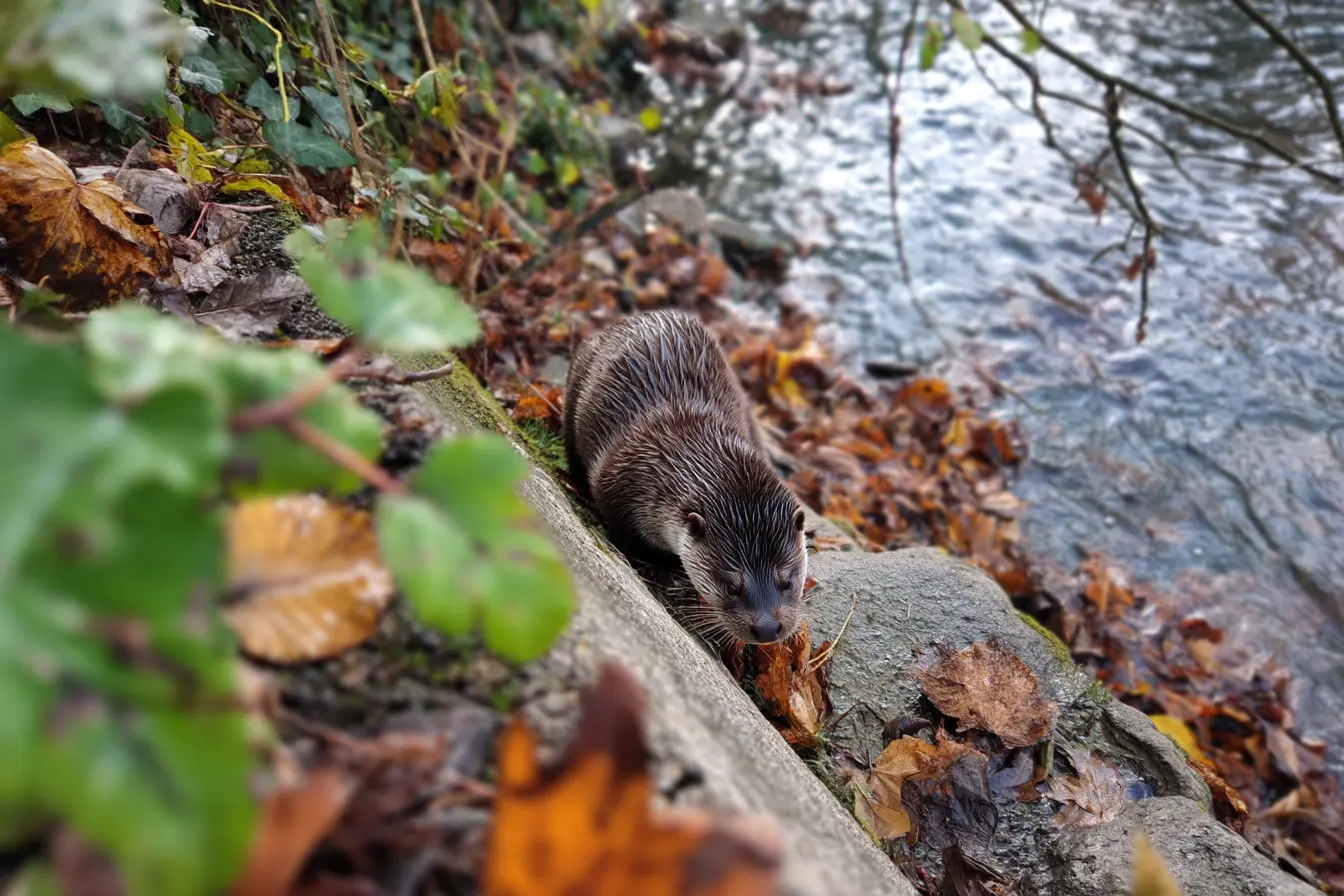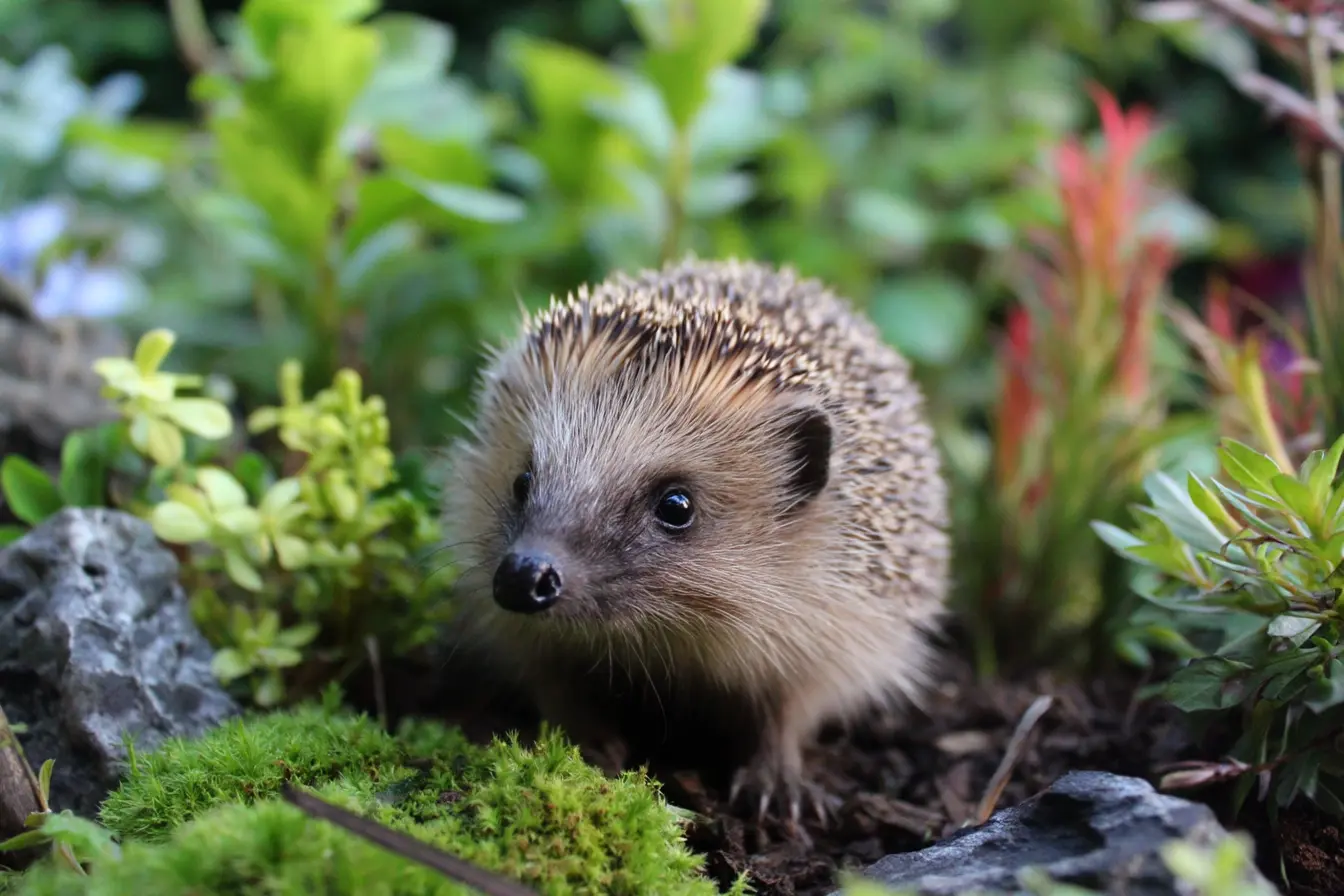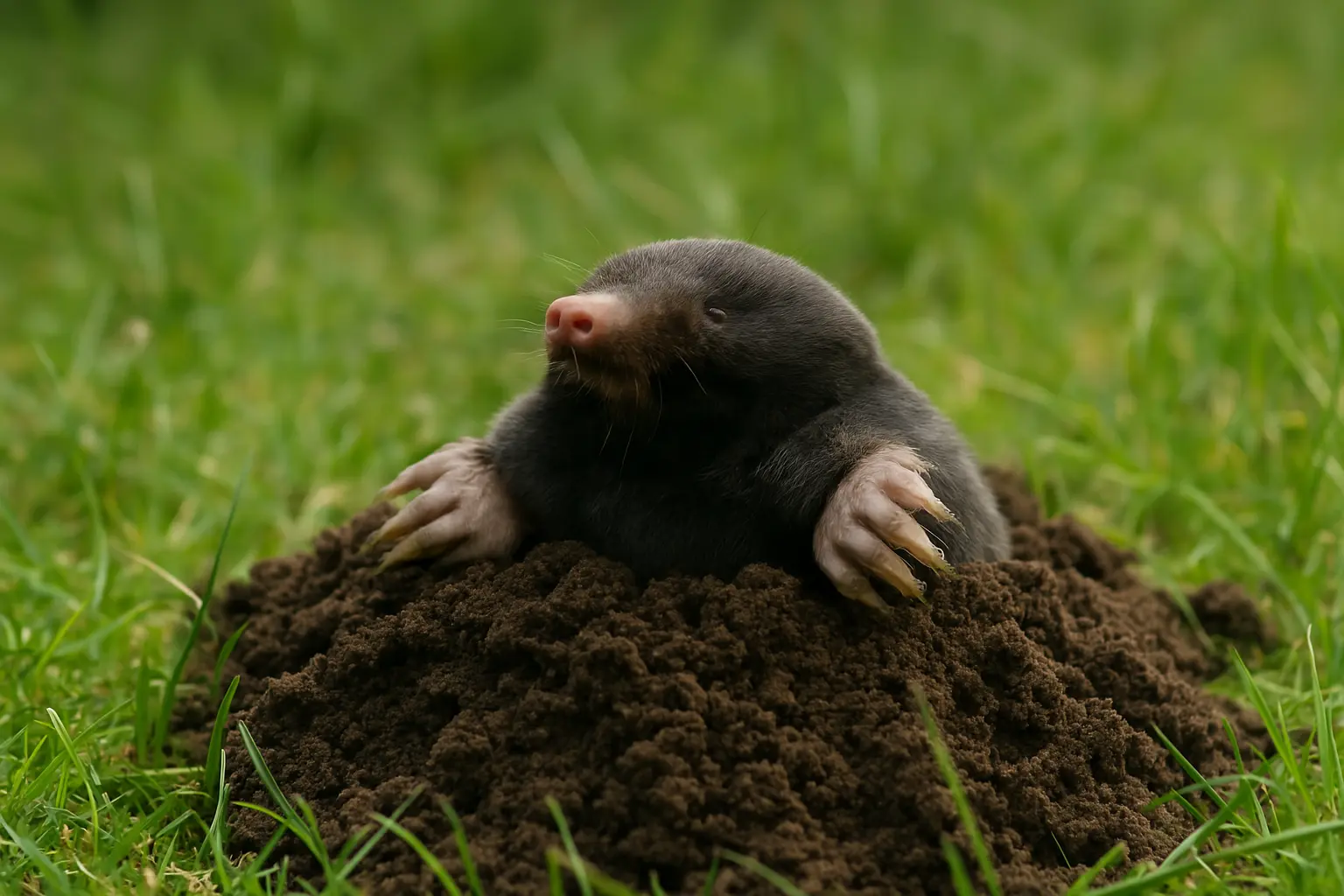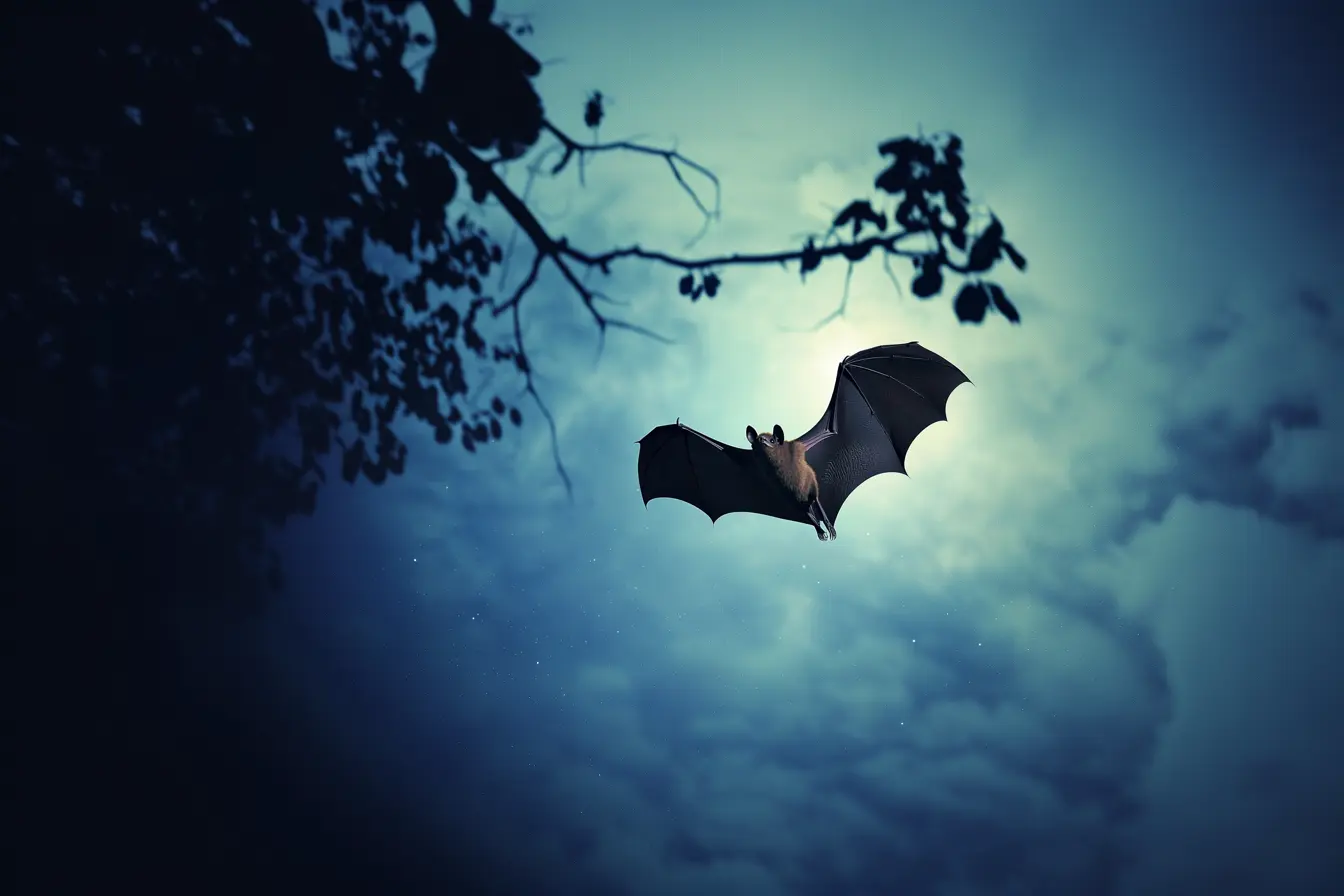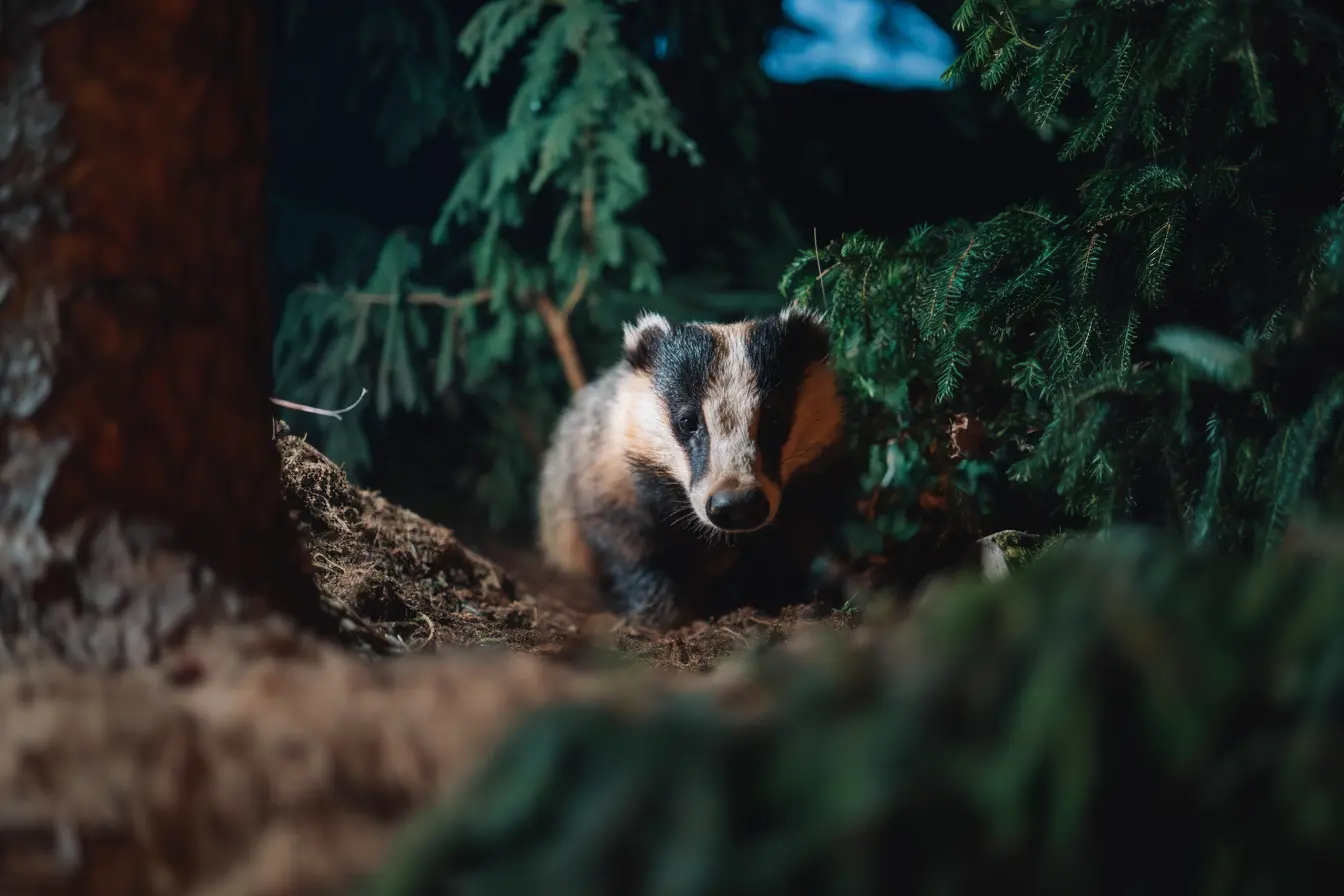
Managing Badgers in Your Garden or on Your Land
Badgers are iconic British mammals, protected by law and admired by many for their distinctive black-and-white markings. However, for gardeners, farmers, and landowners, badger activity can sometimes become a challenge. From digging up lawns to damaging fencing or disturbing crops, managing their presence requires care, legal awareness, and thoughtful strategy.
In this post, we’ll explore everything you need to know about badgers in your garden or on your land – how to identify their activity, what the law says, and how to deter them responsibly.
About Badgers
The European badger (Meles meles) is the only species found in the UK. Badgers are nocturnal, omnivorous creatures that live in social groups known as clans, usually in a network of underground tunnels called a sett. These setts are often used for generations.
Badgers primarily eat earthworms, but their diet can include insects, fruits, cereals, small mammals, and bird eggs. Their digging habits can cause significant disruption in gardens, especially in search of grubs or when creating new setts.
Signs of Badger Activity
Badgers leave a few characteristic signs that can help you identify their presence:
- Setts: These are large burrow entrances, often with multiple holes, heaps of excavated soil, and well-worn paths leading in and out.
- Turf damage: Badgers may dig up lawns or flowerbeds in search of grubs and worms, leaving behind patches of upturned turf.
- Footprints and droppings: They have distinctive clawed footprints. Their droppings are often left in shallow pits (latrines) to mark territory.
- Fence damage: Badgers are strong and can push through or dig under fencing, especially near known pathways.
Legal Protection of Badgers
In the UK, badgers and their setts are protected under the Protection of Badgers Act 1992. This means it is illegal to:
- Intentionally kill, injure or take a badger
- Interfere with a badger sett (this includes blocking, damaging or destroying it)
- Disturb a badger while it is occupying a sett
Breaking these laws can lead to prosecution, heavy fines, or imprisonment. Always seek advice from Natural England or your local authority before taking action involving badgers or setts.
Non-Lethal Deterrents and Prevention
If badgers are causing disruption but no active sett is present, there are several legal ways to deter them:
Secure Boundaries
- Fencing: Install sturdy, badger-proof fencing buried at least 30 cm into the ground and angled outwards at the base.
- Electric fencing: Low-voltage electric fencing can be used as a temporary deterrent (e.g. around crops or lawns), but must comply with safety guidelines.
Remove Attractants
Badgers often visit gardens in search of food. Reduce attraction by:
- Not leaving out food waste, pet food, or birdseed overnight
- Keeping compost bins secure and rodent-proof
- Removing fallen fruits or garden pests like chafer grubs
Light and Sound
Being nocturnal, badgers dislike disturbance. Motion-activated lights or ultrasonic animal deterrents may discourage visits, though they are not always reliable long-term solutions.
Repairing Lawn Damage
Badger foraging can leave your lawn riddled with dug-up patches. Once you're sure the badger activity has stopped or moved on:
- Re-lay turf or re-seed damaged areas
- Use natural grub control to reduce their food source (e.g. nematodes)
- Keep lawns well watered and maintained to reduce insect larvae populations
When a Sett is Present
If badgers are living on your land, managing the situation becomes more complex due to legal protections.
You must not attempt to block or disturb an active sett without a licence.
Seeking Professional Help
- Contact Natural England (or the equivalent body in Wales or Scotland) for advice and licencing queries.
- A licensed ecologist or wildlife control professional can assess the sett and advise on legal steps, such as applying for a disturbance licence.
Licences are typically only granted in exceptional circumstances – for example, if the sett is causing a serious safety risk or structural damage.
Badgers and Agriculture
Badgers can impact farmland by damaging crops, digging in fields, or contributing to the spread of bovine tuberculosis (bTB). While this is a complex and often controversial subject, the government operates licensed control programmes in certain high-risk areas.
Farmers are encouraged to:
- Maintain biosecurity measures
- Use badger-proof feed stores and fencing
- Monitor sett activity with wildlife cameras
Always follow current government guidelines and consult your local wildlife adviser before intervening.
Final Thoughts
Badgers are a valued part of Britain’s wildlife heritage, but their presence can occasionally create problems for gardens and land. The key to managing them lies in understanding their behaviour, respecting legal protections, and using humane, lawful deterrents.
Before taking action, always seek expert advice to ensure you're staying within the law. In many cases, peaceful coexistence is possible with a few practical adjustments to your garden or land.
Useful Resources
- GOV.UK: Badger protection and control
- Natural England wildlife licences
- The Badger Trust
- RSPCA – Dealing with wildlife
Take care – and tread carefully where badgers are concerned.
Vets near you
Speciality vets
- Aquatics vet specialists
- Birds vet specialists
- Camelids vet specialists
- Cats vet specialists
- Cattle vet specialists
- Deer vet specialists
- Dogs vet specialists
- Equines vet specialists
- Exotic vet specialists
- Goats vet specialists
- Pigs vet specialists
- Poultry vet specialists
- Sheep vet specialists
- Small Mammals vet specialists
- Wild vet specialists
Vet facilities
- Accessible by public transport
- Blood testing
- Car park nearby
- Client car park
- Dentistry
- Diagnostic imaging
- Disabled public access
- Flea and worm treatments
- Microchipping
- Mobile services
- Neutering
- Open at weekends
- Out-of-hours service
- Referral interests
- Referrals only
- Street parking outside
- Toilets available
- Vaccination clinic
